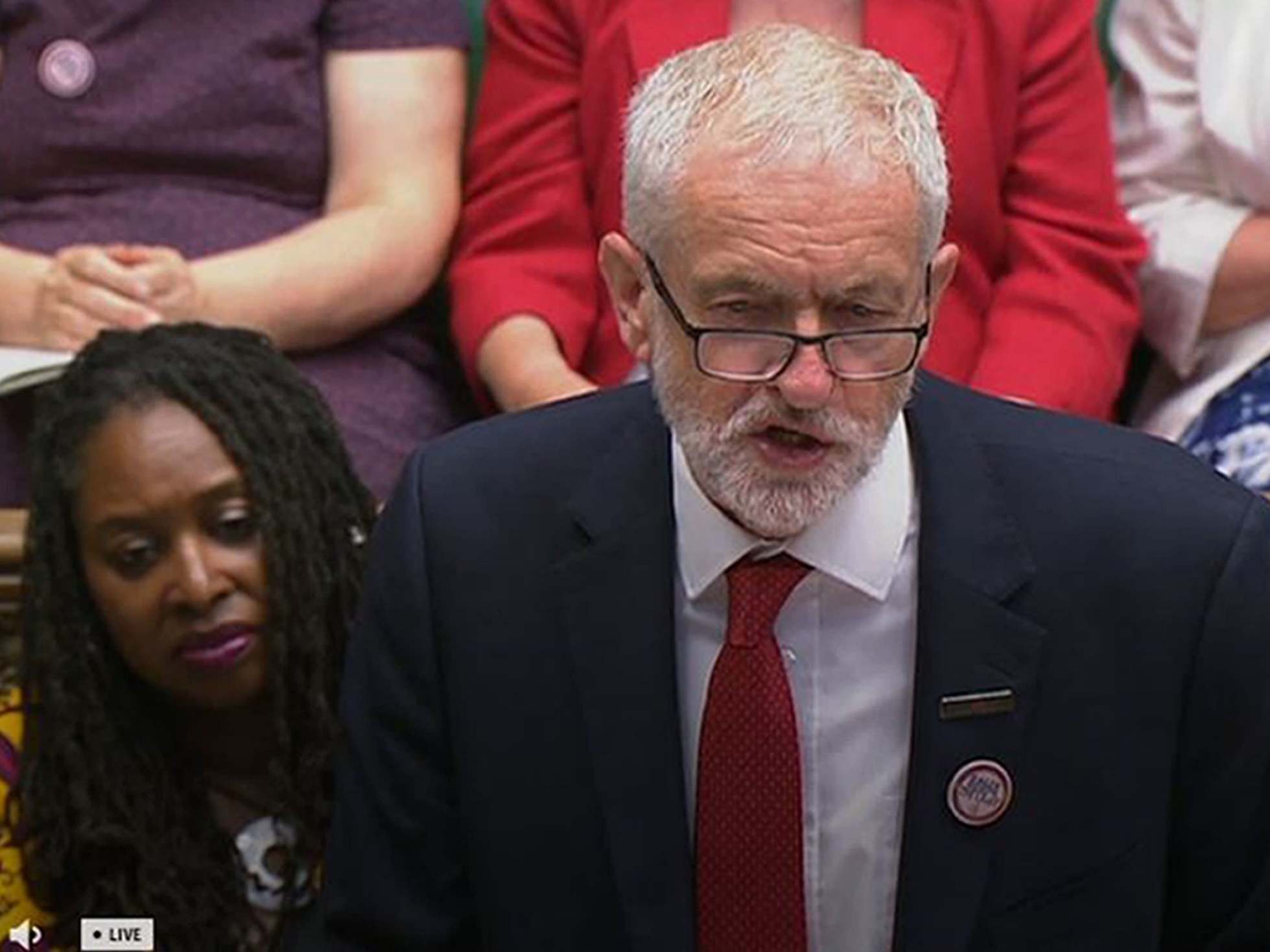The ‘unity government’ brinkmanship is only just beginning
Jeremy Corbyn’s offer to be caretaker prime minister in order to avert a no-deal Brexit is an opening shot in what could be weeks of manoeuvring, writes Andrew Grice


Jeremy Corbyn has sparked an intense debate about how to prevent the UK crashing out of the EU without a deal, by proposing he leads a caretaker government until an early general election.
As leader of the opposition, Mr Corbyn would have the first crack at forming an alternative administration if MPs opposed to a no-deal exit passed a vote of no confidence in Boris Johnson’s government. Under the Fixed-term Parliaments Act 2011, there would then be a 14-day cooling off period for another prime minister to win a positive vote of confidence. If that did not happen, an election would be called.
The problem for no-deal opponents is that while they would probably have enough votes to defeat the Johnson government, the reaction to Mr Corbyn’s move from other parties suggests he would struggle to command a majority, even for the “strictly-time limited” administration he proposes. The Scottish National Party, the third largest in the Commons, and Plaid Cymru have an open mind about the Corbyn plan but the Liberal Democrats were quick to reject it as “nonsense”. It is possible that some of his Labour MP critics would not vote to put Mr Corbyn in Downing Street, while few Tories would do so.
Unless MPs backed a “national unity” or “emergency” government headed by an alternative PM such as the Tories’ Kenneth Clarke or Labour’s Harriet Harman, there would be an election. Crucially, Mr Johnson would decide its timing. His allies suggest he would call it for shortly after 31 October, so the UK would leave without a deal during the election, with parliament powerless to stop a crash-out because it would be suspended for the campaign.
Despite the lukewarm reaction to Mr Corbyn’s proposal, it might not be dead in the water. It should perhaps be seen as an opening shot in what will be several weeks of manoeuvring when MPs return from their summer break on 3 September.
One barrier to a cross-party agreement is that the Labour leader is seen as a tribal rather than consensual figure. Another is that Labour is not committed to Remain; while it would hold a Final Say referendum after an election with Remain on the ballot paper, Mr Corbyn is keeping open the option of negotiating a “Labour Brexit”. The Green Party argues that a referendum should be held before rather than after an election.
Such differences might narrow during cross-party talks but they suggest that a better route would be for MPs to pass legislation forcing Mr Johnson to seek an extension of the UK’s EU membership beyond 31 October. The problem is that parliamentary time is very short, so the no-confidence vote option might offer the last chance.
The looming deadline might concentrate minds. But if MPs who oppose no deal allow small differences between them to prevent an agreement on tactics, the big winner will be Mr Johnson.
Join our commenting forum
Join thought-provoking conversations, follow other Independent readers and see their replies
Comments